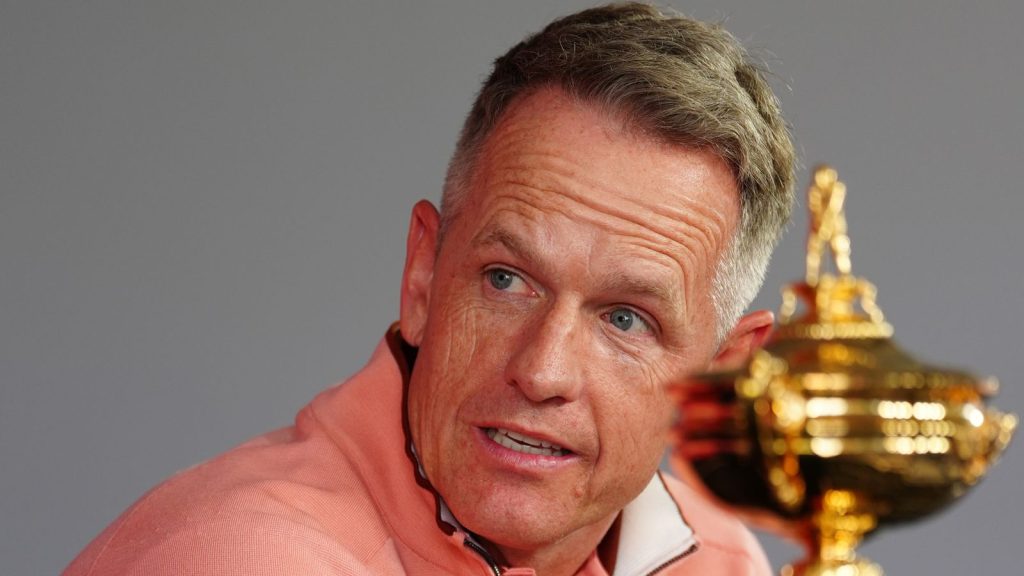Luke Donald has announced that the players in Team Europe have declined any form of payment for participating in the Ryder Cup, even though Team USA will receive compensation to play at Bethpage Black.
Last year, the PGA of America declared that American players would earn $500,000 to represent Team USA in the Ryder Cup, which includes a $300,000 (£222,000) donation to a charity of their choice, alongside a $200,000 (£144,000) ‘stipend’ to use at their discretion.
This week’s event in New York is notable as it marks the first time in Ryder Cup history that American players will receive additional payments, stirring debate over the ethics of pay-to-play ahead of the biannual competition.
Rory McIlroy previously expressed he would “pay for the privilege to play” in the Ryder Cup, while Donald shared his pride in the European players for their stance regarding financial rewards. “I wanted to preemptively address the payment issue with the 12 guys in Rome when the US was contemplating a different payment structure,” Donald shared with Sky Sports.
“They all expressed a unified sentiment of ‘we don’t want to get paid; this isn’t about that week.’ We have a strong sense of purpose within this team and what we stand for,” he added. Donald believes that reinvesting the money into enriching the players’ experiences is more valuable than cash payments.
Bradley, commenting on the new payment structure for American players, stated that it aligns with modern expectations for the Ryder Cup. “We felt this approach was necessary to bring the Ryder Cup into the current age,” he remarked. The decision has stirred mixed opinions, particularly as players compete for significant prize purses and ticket prices soar to record levels.
The $200,000 charitable contribution has been in place since 1999 when players like Tiger Woods raised concerns over the distribution of Ryder Cup profits. Bradley emphasized the importance of evolving this approach for the benefit of charity and the players.
“Ultimately, my focus is on my team, and I believe this change will have a positive impact,” Bradley concluded. He expressed confidence that the players would utilize their earnings for good causes, emphasizing the potential benefits of the adjustment in how Ryder Cup participation is rewarded.



